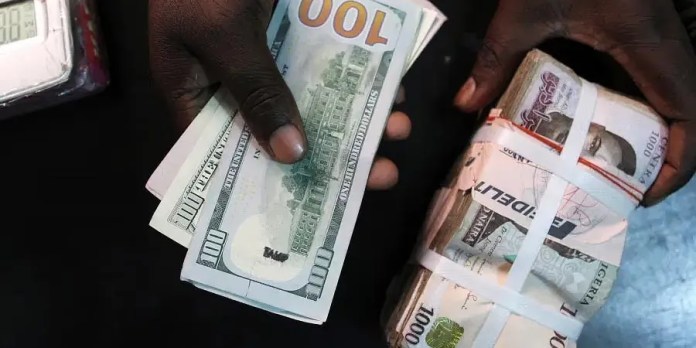Crime in books than in Practice: Black Market Foreign Exchange Businesses in Focus
The operators, who are mostly African foreign Nationals, like Nigerians, Nigeriens, Malians, and the likes however give better rates than the official Forex bureaus in the exchange of currencies.

Black Market forex deals had existed and flourished prior to 1988 when the country’s financial market was liberalized to allow the operation of official and registered foreign Exchange Bureaus. Some call it the underground economy while others aptly put it; ‘shadow economy.’ In Ghana, the forex black market is not done underground but rather openly and in visible places.
Those Markets indeed compete with the real and main platforms be it physical or virtual where goods and services are parted with, thereby leaving traces of repercussions or burden on the real economy of the nation.
The Market, though illegal, before this era, had been the only alternative to the traditional banks in the country relative to the operation of foreign exchange, which most people saw and described as restrictive.
Restrictive as foreign exchange of the Banks was, it inadvertently quelled the interest of most clients from seeking their services thus resorted to the Black markets which operate in known areas in the full glare of the public and security officials.
In Accra especially, it is not unusual to spot and witness or see people solicit services of such market operators if one visits the Central Business District in the Market area, Tudu, Lava stretching as far as the High Street in the Cow Lane area. The sad aspect of this is that these people operate close to Police Stations.
The operators, who are mostly African foreign Nationals, like Nigerians, Nigeriens, Malians and the likes give better rates than the official forex bureaus in the exchange of currencies such as the US Dollars, the Naira, the Pounds, CFA Franc and several currencies.
Try to interview most of the patrons and you would hear reasons like ‘they have limitless withdrawal of foreign currencies compared to the restrictions by the traditional Banks’ for their activities.
This parallel enterprise creates a worrisome futuristic trend for the country’s financial market. For some experts, the repercussions are being felt now because these black market operators are pulling out so many foreign currencies into the Financial market thus shelving up our local cedi and contributing to the fiscal challenges of the nation.
The realists will as usual maintain and echo that it is their time to seek action now because the idealists have long gone to sleep on the matter.
It is an offence to engage in Black Market Forex Business in Ghana. The law states that it is an offence to engage in the “the business of dealing in foreign exchange without a licence” and whoever conducts such activity ” commits an offence and is liable, on summary conviction, to a fine of not more than seven hundred penalty units(GHC 8400) or a term of imprisonment of not more than eighteen months or both” [Section 29 of the Foreign Exchange Act, 2006(Act 723)]
The Bank of Ghana, which is the main regulator has had causes to caution the General public periodically against these dealings. Apart from public notice, the Bank of Ghana has not taken any steps with the Ghana Police to stop this criminal business activity.
Although this is an offence, it is sad to note that some of the black markets operate openly and close to the Police Station. The Greater Accra Regional Police Headquarters and the Airport Police Station is noted as a place where the criminal act of the black market operates openly.
Additionally, the Act specifies in clear terms the requirement for becoming a forex operator in the country which the Black market operators conspicuously fall short of.
It notes per Section 3 also that; “A person shall not engage in the business of dealing in foreign exchange without a licence issued under this Act. The Bank shall prescribe the banks or other corporate bodies or persons that it considers competent to engage in the business of dealing in foreign exchange. The Bank shall issue or renew a licence to engage in the business of dealing in foreign exchange subject to conditions that the Bank shall determine from time to time.”
The Bank of Ghana is empowered to ensure that such dealings in foreign currencies are done relative to the laws of the country.
Section 16 of the same act referred supra also notes that “ Where the Bank has reason to believe that an offence in contravention of this Act is likely to be committed or has been committed, the Bank may require a bank to obtain the permission of the Bank before the execution of any payment under subsection (1) of section 15. The permission shall be granted solely based on a determination by the Bank that the payment is consistent with the laws of this country.”
Further to the above, per a 2014 Bank of Ghana regulation on Forex Businesses in Ghana, the licenced forex Operators were as part of the steps to deal with the chaffs in the Business, required to adopt a certified software approved by the central bank to computerize their operations.
Also, they were tasked to stop issuing manual receipts and migrate electronically relative to the keeping of clients' records.
Black Market foreign exchange Business is a crime but the same is not considered in practice. The open display of the business and the conduct of the business close to the police station reveals the acceptance of this crime. If one cannot operate a “wee” business next to a Police Station, why do the officers of the law allow such a crime to operate not in the undercover world but rather in the open space? The crime has been normalized by the tacit approval of the Bank of Ghana and the Ghana Police Service.


